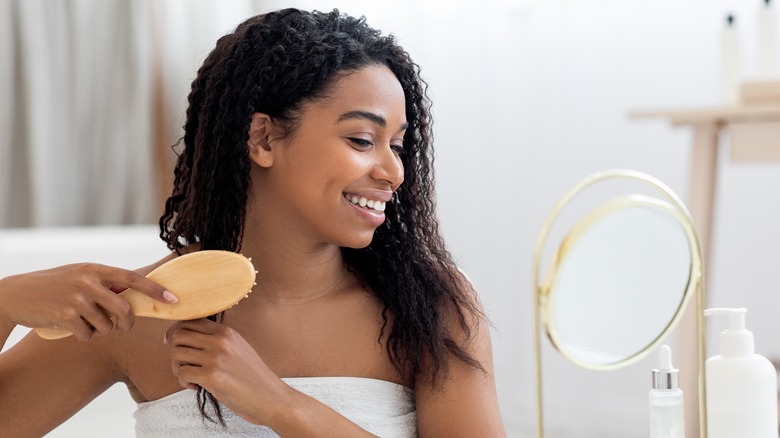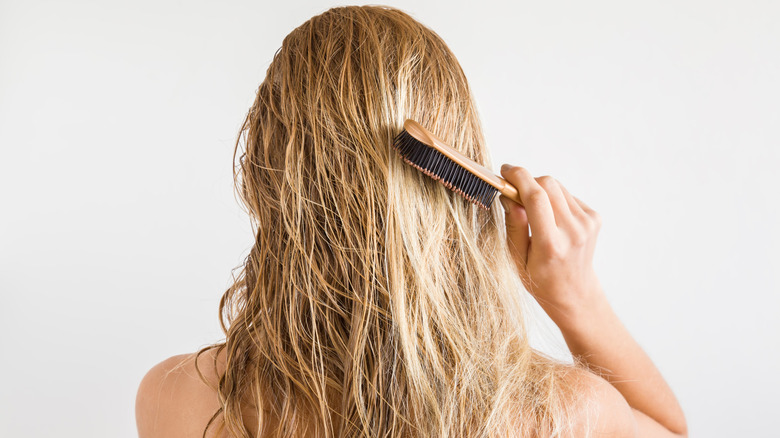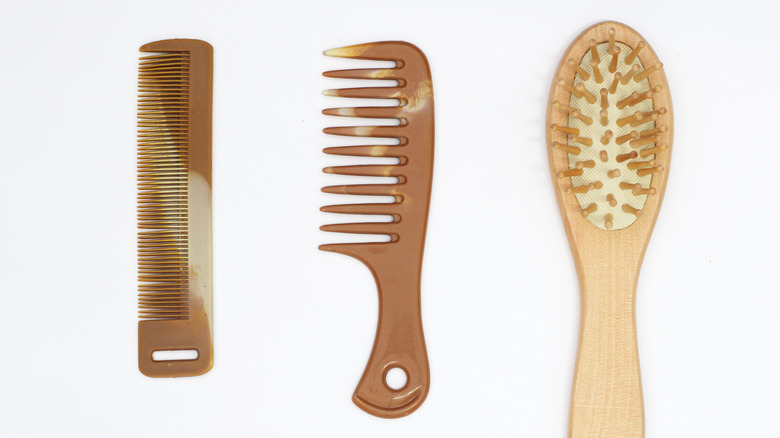You Might Want To Rethink Brushing Your Hair When It's Dry. Here's Why
Taking care of our hair amidst the damage we all unknowingly do to it on a regular basis is vital. Each day introduces a slew of chemicals in the form of gels, creams, and sprays. We also apply heat, whether through curling irons, blow dryers, or straighteners. That's not even counting the monthly chemical processes to dye, bleach, curl, and/or straighten.
Regularly pulling your hair back too tightly or subjecting it to certain types of hot oil treatments can even lead to hair loss, according to the Mayo Clinic. And, if these treatments cause our scalp to scar, the hair may never grow back. We also expose our hair to the harsh rays of the sun for hours on end, rub it too vigorously when shampooing, and skip conditioner (via the American Academy of Dermatology Association).
All of these things can cause serious damage in the long run. Another seemingly innocent habit can also hurt your hair and you may be doing it on a regular basis.
What happens when you brush wet hair
We've all done it before. After stepping out of the shower, we sit at our vanity or look in the mirror and without thinking, immediately start to brush our hair. Yet this one simple act can be exponentially damaging to our locks.
Trichologist David Adams says you shouldn't brush your hair when it's wet. "When hair is wet, it will stretch to three times its original length and return to normal when dry," he explained to the Sunday Edit. Since it's vulnerable when wet, it can break, especially if you've chemically straightened or permed your hair or already have damaged locks.
Now here's the tricky part. Depending on your hair type, brushing your hair when totally dry may also cause damage. Dry hair gets tangled easier, and brushing knots out will cause it to be ripped out at the roots.
Why dry brushing can also be a problem
When brushing dry hair, celebrity hairstylist Vincent De Marco recommends sectioning your hair off and gently brushing each area slowly, starting from the middle or near the end of your hair, rather than the roots. "Brushing your hair from top to bottom will inevitably cause breakage," De Marco warned Healthline. "If your brush gets stuck, remove it and start again, gently."
If your hair is curly and you want to brush it while dry, it's vital to add some nourishing oil to your strands first, as celebrity hairstylist Justi Embree advised MarthaStewart.com. This helps avoid having it frizz out and prevents the brush or comb from getting stuck. Simply add a few drops of hair serum or oil, particularly at the ends, before you brush. For best results, use a wide-toothed comb and gently work it through your curls.
For straight hair, purchase a brush specifically made for dry hair, such as a paddle brush. It should contain gentle bristles that aren't rigid but glide along, which helps prevent them from getting stuck and protects your tresses in the process.


